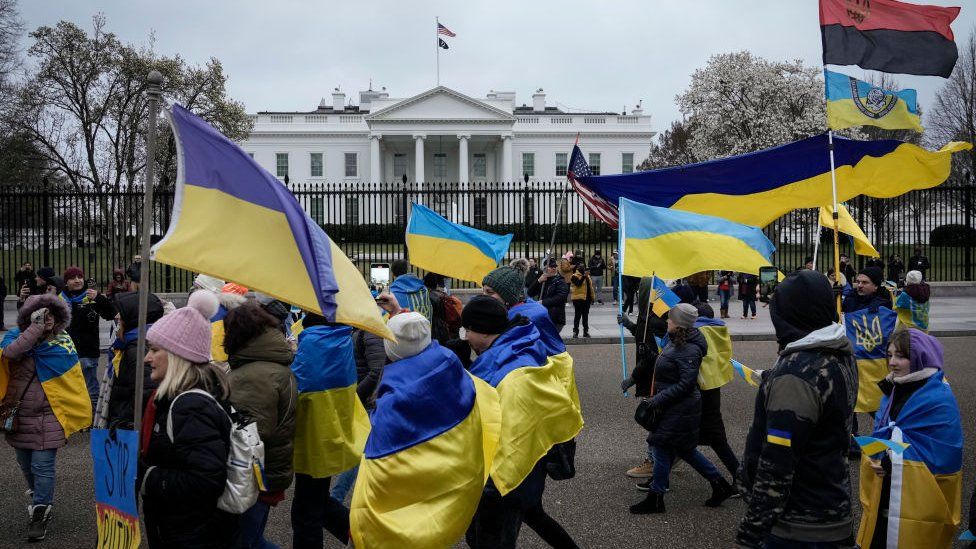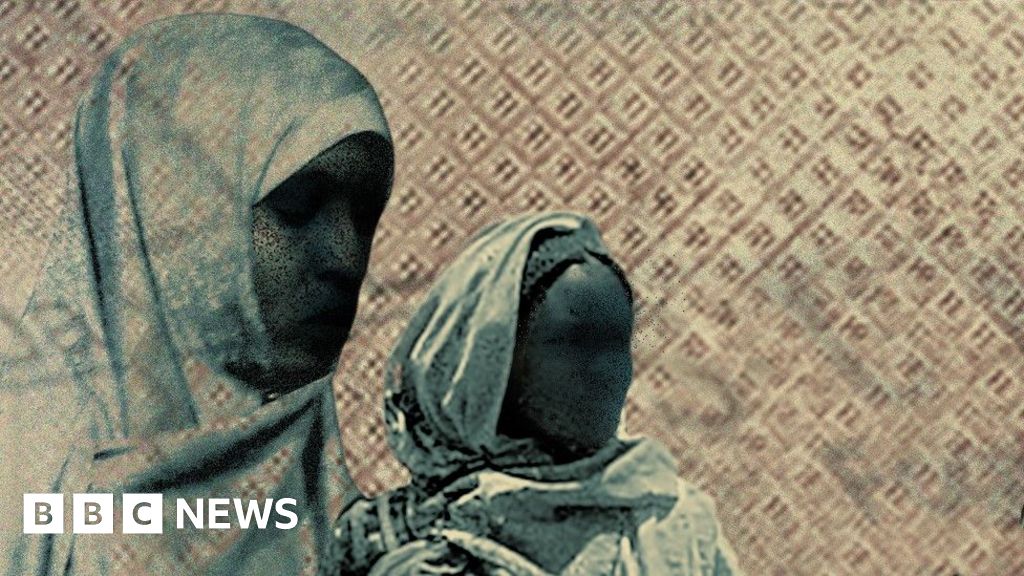ARTICLE AD BOX
 Image source, Getty Images
Image source, Getty Images
The US House of Representatives approved a much-delayed $61bn aid package to Ukraine over the weekend
By Steve Rosenberg
Russia editor
A good rule of thumb since Russia's full-scale invasion of Ukraine has been that what is good for Kyiv, is bad for Moscow.
Last Saturday brought good news for the Ukrainian government. The US House of Representatives voted in favour of a $61bn (£49bn) aid package for Kyiv, which will be used to arm its military.
The House also approved a bill that will allow the seizure and transfer to Ukraine of Russian assets frozen in America. The bills now move to the Senate for approval.
Unsurprisingly, this did not go down well in Moscow.
Hawkish former President Dmitry Medvedev condemned the "61 billion bloody dollars". He called for a new American Civil War that "would finally lead to the inglorious break up of the 21st Century's evil empire, the United States of America".
On his flagship Sunday night state TV talk show, presenter Vladimir Solovyov described the idea of transferring Russian assets to Ukraine as "an act of financial terrorism".
"If they go through with this," Mr Solovyov said, "then on the level of the State Duma and the government, we must declare America a financial terrorist."
He added that he now believes war between Russia and Nato is "inevitable".
Talk of "evil empires" and "inevitable wars" is dramatic.
But, in the main, Russia's reaction to events in Congress is best summed up by the phrase Keep Calm and Carry On.
While fiercely critical of additional US aid to Kyiv, Russian officials and the state media have been playing down its potential consequences, with a series of key messages in the media.
"We had fully expected this," said Vladimir Putin's spokesman Dmitry Peskov on Monday, when asked about the president's reaction to the US aid package.
Image source, Reuters
Image caption,Peskov has been Putin's press secretary since 2012
The same claim appeared in Monday's edition of the Russian government newspaper, Rossiyskaya Gazeta, which declared: "Such an outcome of the vote on assistance to Ukraine had been expected".
Meanwhile, "US aid won't change the situation on the battlefield" is the headline in the latest edition of the pro-Kremlin Izvestia newspaper.
Mr Peskov delivered the same message almost word-for-word. "It won't change the situation on the battlefield in any significant way," he told journalists.
"The Russian armed forces are improving their positions in the Special Military Operation [Russia's war in Ukraine].
"The money being provided, the weapons which will be supplied for this money, they will not change the dynamic. More Ukrainians will be killed."
Russian officials and pro-Kremlin media claim that, by continuing to support Ukraine, the US is "getting dragged into" a war it will lose.
Monday's Izvestia asked: "Off the top of their heads, can anyone name one major conflict from which the Americans emerged undisputed victors? Vietnam? Iraq? Afghanistan?"
"Sometimes it seems strange that Washington is constantly being dragged into military escapades which end in failure one after another," it continued.
Russian Foreign Ministry spokesperson Maria Zakharova added: "Washington is sinking deeper into this hybrid war against Russia. It will end in a loud and humiliating fiasco for America, like Vietnam and Afghanistan."
Moscow's messaging is clear - there is no panic. But there is concern. The aid package can help Ukraine and hurt Russia.
Monday's edition of daily newspaper Moskovsky Komsomolets predicts Ukrainian strikes in the near future, "deep into [Russian] territory. But, most likely, on Crimea. And, of course, on the Crimean bridge".
That bridge, linking the Russian mainland to the annexed Crimean peninsula, is a key target for Ukraine and has been attacked before.
There is concern, too, at the prospect of Russian assets abroad being handed over to Ukraine. The vast majority of frozen Russian funds are in the EU, not America. But Moscow will not want to see the US set a precedent that Europe could follow.

 9 months ago
56
9 months ago
56








 English (US) ·
English (US) ·